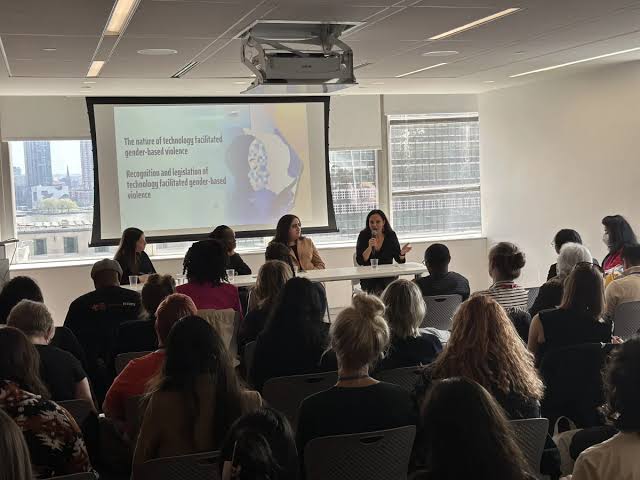Digital Dangers: The Alarming Rise of Technology-Facilitated Gender-Based Violence in Nigeria
Digital Dangers: The Alarming Rise of Technology-Facilitated Gender-Based Violence in Nigeria
By Achimi Muktar
A silent epidemic is sweeping across Nigeria—technology-facilitated gender-based violence (TFGBV). From cyberstalking to non-consensual sharing of intimate images, this digital menace is leaving thousands of women in fear, isolation, and emotional distress.
The non-profit organization Webfala Digital Skills for All Initiative (WDSFAI) has raised the alarm about the growing threat of TFGBV. In a powerful statement, the group’s Executive Director, Nafisat Bakare, detailed the devastating consequences of this modern form of abuse.
“Victims of TFGBV often face profound psychological trauma, reputational harm, and economic losses,” Bakare said. “Many feel pressured to conform to societal expectations or endure abuse in silence to avoid further harassment or stigmatisation.”
What is TFGBV?
According to the United Nations Population Fund (UNFPA), TFGBV is violence perpetrated using information and communication technologies or digital media against individuals based on their gender. It includes a range of harmful activities, such as:
Cyberstalking
Online harassment
Non-consensual sharing of intimate images
Doxxing (revealing private information)
Any act intended to cause harm, fear, or shame.
Shocking Statistics and Weak Protections
Between January and May 2024, over 6,000 cases of gender-based violence were reported across Nigeria, despite the Violence Against Persons Prohibition (VAPP) Act. However, the response to TFGBV remains inadequate.
“The VAPP Act is not universally adopted across all states,” Bakare explained, “leaving significant gaps in protection for women and girls.”
Outdated cybercrime laws, lack of enforcement, and inadequate training for law enforcement compound the problem. Victims face stigma and blame when reporting incidents, discouraging many from seeking justice.
The Role of Technology Companies
Technology platforms, which often become the battlegrounds for abuse, have a role to play in addressing TFGBV. Bakare called on tech companies to implement stricter content moderation, transparent reporting mechanisms, and collaborations with local organisations to create safer online spaces.
Breaking Barriers with Data and Awareness
One of the biggest challenges in combating TFGBV in Nigeria is the lack of comprehensive data. Without reliable statistics, efforts to address the issue remain scattered and ineffective.
“Targeted policies, public awareness campaigns, and support services can only be developed with accurate data,” Bakare emphasized. “Collaboration between academia, civil society organizations, and government agencies is critical to bridging this gap.”
A Call to Action
Bakare outlined a multi-faceted approach to combating TFGBV:
Government: Ensure universal adoption and enforcement of the VAPP Act. Update existing laws to address digital abuse and provide specialized training for law enforcement.
Technology Companies: Create safer online environments through better moderation and partnerships.
Support Services: Expand access to counseling, legal aid, and victim support, particularly for rural women.
A United Front
To end TFGBV, Bakare urged collective action from all sectors of society. “It is time for government, civil society, and technology companies to work together to create a safer digital environment for everyone.”
With more than 6,000 lives already impacted this year alone, the urgency to act has never been greater. The fight against TFGBV is not just about protecting women—it's about ensuring justice, equality, and safety in a rapidly evolving digital world.


















